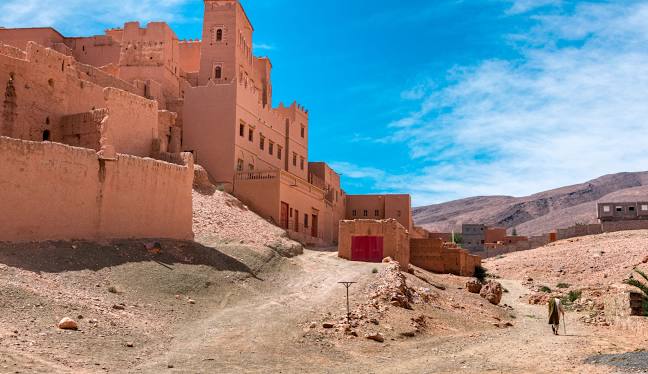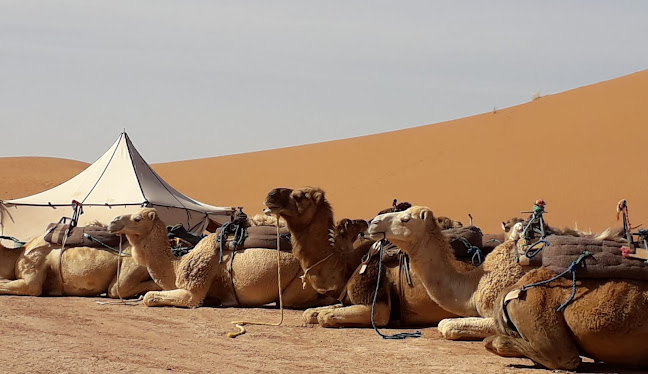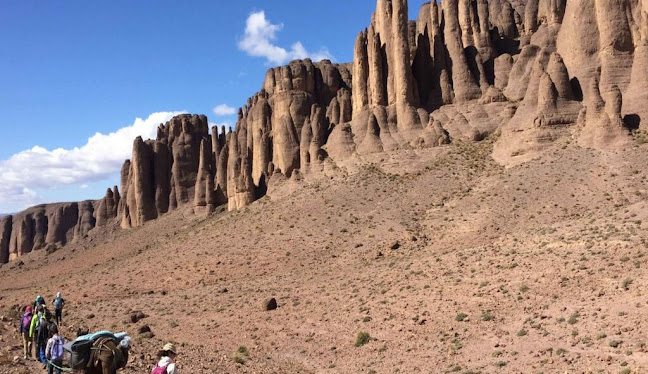Zagora Morocco, home to Kasbah of Peace, is a captivating town located in the southeastern part of Morocco, nestled at the edge of the vast Sahara desert in the Draa River Valley. Known for its arid landscapes, date palm groves, ancient history, and as a traditional departure point for desert expeditions, Zagora serves as a fascinating blend of natural beauty, cultural heritage, and adventure.
Zagora Morocco
While not as well-known as Marrakech or Fes, Zagora Morocco offers a quieter, more authentic experience of southern Moroccan life, particularly for those seeking to connect with Berber traditions and desert culture. The name Zagora is believed to have derived from the nearby mountain Tazagourt, which overlooks the town and served as a strategic lookout point for centuries.
Historically, this area was a major crossroads for trans-Saharan trade routes, linking Morocco with sub-Saharan Africa. Caravans carrying gold, salt, spices, and slaves passed through this region, stopping at Zagora for rest and supplies before continuing their arduous journeys. A famous sign in Zagora reads, ‘Timbuktu 52 days’, referring to the estimated time it once took for camel caravans to reach Timbuktu in Mali from Zagora.
Though the era of camel caravans has largely passed, this sign remains a nostalgic symbol of the town’s historic role in desert trade and travel. Zagora Morocco is predominantly inhabited by the indigenous people of North Africa. The local culture is deeply rooted in Amazigh traditions, reflected in the language, music, crafts, and festivals of the region. Visitors to Zagora often have the opportunity to experience Berber hospitality, cuisine, and artisan products such as pottery, textiles, and silver jewelry.
Zagora lies on the Draa River, Morocco’s longest one, which is vital to the town’s agricultural life. The valley is famous for its lush date palm oases that contrast sharply with the surrounding desert terrain. This verdant corridor of palm groves supports a variety of crops, including barley, wheat, olives, and citrus fruits, thanks to traditional irrigation systems.
The climate in Zagora Morocco is hot and dry, with temperatures often exceeding 40°C in the summer. Winters are mild and more comfortable for travel. Due to its desert location, rainfall is scarce, and the town experiences long stretches of clear, sunny skies. The best time to visit Zagora is between October and April when the weather is more temperate.
Zagora is best known as a starting point for excursions into the Sahara Desert. While the town itself is not deep within the sandy dunes like Merzouga near Erg Chebbi, it offers access to smaller dunes and authentic desert experiences in places like Tinfou and Chegaga. Travelers can embark on camel treks, 4×4 desert safaris, or even overnight stays in traditional Berber tents under a sky filled with stars.
These experiences offer a rare opportunity to disconnect from the modern world and immerse oneself in the tranquility and vastness of the desert. Campfire storytelling, traditional drumming, and Moroccan tea ceremonies are common features of these desert nights. In recent years, eco-tourism and cultural tourism have grown in popularity in Zagora Morocco. Visitors can explore ancient fortified homes and villages, in addition to local markets, where one can buy spices, crafts, and locally grown dates.
Notable nearby attractions include the Kasbah of Aït Benhaddou, the ancient Jewish quarter of Amzrou, and the Draa Valley villages like Tamegroute, known for its green-glazed pottery and historic Islamic library. Despite its cultural richness and natural beauty, Zagora faces challenges related to infrastructure, water scarcity, and sustainable tourism development.
Zagora Morocco is highly dependent on agriculture and tourism, both of which are vulnerable to climate change. Prolonged droughts have put pressure on the Draa River and traditional irrigation systems. However, there are ongoing efforts to promote responsible tourism and preserve local heritage. NGOs and government programs support eco-friendly guesthouses, craft cooperatives, and cultural festivals that highlight the unique identity of the region while providing economic opportunities for locals.
Zagora Morocco is more than just a stopover on the way to the Sahara, but a destination in its own right. Rich in history, surrounded by striking natural beauty, and home to a resilient and welcoming community, Zagora captures the essence of southern Morocco. Whether you’re drawn by the allure of the desert, the rhythm of Berber drums, or the chance to walk among centuries-old palm groves, Zagora offers a journey that is both adventurous and deeply enriching.




